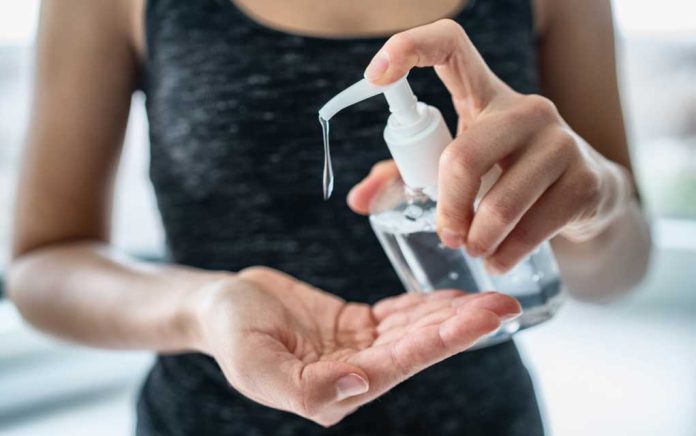
(HealthyResearch.com) – Washing our hands with soap and water is the best way to avoid infection from COVID-19, according to the Centers for Disease Control and Prevention (CDC). Barring access to soap and water, they recommend the use of hand sanitizer.
But one thing we should never do with hand sanitizer? Swallow it.
The Dangers of Ingesting Hand Sanitizer
Even though not swallowing hand sanitizer may seem like common sense to most of us, several people have died already from ingesting hand sanitizer. According to a new CDC report released in August, 15 adults were hospitalized after drinking the toxic product.
The report showed people in Arizona and New Mexico were poisoned by methanol, a component in some imported brands of hand sanitizer, between May 1 and June 30. Victims swallowed or drank the hand sanitizers.
New Mexico health officials announced in June that three residents died after drinking products containing methanol. They reported three others were in critical condition, and one was permanently blinded.
In every case, hand sanitizer ingestion was related to alcoholism, researchers found. People drank them because of the advertised high alcohol content without understanding or realizing that they were consuming methanol.
The CDC has warned about the dangers of methanol poisoning. They caution us never to ingest hand sanitizers under any circumstances. If you suspect anyone you know may have swallowed an alcohol-based hand sanitizer product, seek immediate medical attention.
Avoid Any Product Containing Methanol
The Food and Drug Administration (FDA) has recently found many hand sanitizers contain methanol. Methanol may cause kidney failure, headache, blurred vision, dizziness, and even coma or death. Here are 75 brands that are considered toxic and are known to contain methanol. The FDA cautions people NOT to use these products.
The CDC suggests we use only products that contain ethanol or isopropanol. Methanol can be absorbed through eye contact, skin contact, ingestion or inhalation, making it a dangerous, toxic ingredient. Both the CDC and the FDA recommend that anyone who may have been exposed to hand sanitizer containing methanol should:
- Seek immediate medical treatment.
- Stop using the product immediately.
- Dispose of the product in an appropriate hazardous waste container; don’t just pour it in a sink or flush it down a toilet because methanol is a potent environmental poison.
Hand sanitizers have been a valuable tool in the fight against COVID-19 — just remember to avoid those containing methanol. Read labels to be sure of ingredients. If you have any doubts, use a name brand and look for products that are at least 60% ethanol or isopropanol. When used correctly, experts say hand sanitizers may reduce our risk of COVID-19 infection by more than 20%. And now, we all know what NOT to do with hand sanitizers!
~Here’s to Your Health & Safety!
Copyright 2020, HealthyResearch.com
















